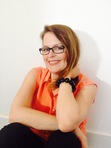Stacey D. Atkinson's Blog, page 3
December 5, 2014
Professional development for writers and editors: finding your tribe
Have you ever wondered if you are keeping pace with trends in writing and editing, or even the English language for that matter? It's important to know about changing norms and standards, and to be inspired by conversations of like-minded people talking about the same things that you are passionate about. Here are some ideas to help you find your tribe.
If you are a writer, editor, or indexer, you may find that you often work alone and only turn to your dictionaries and style guides when you need to figure out an answer to a pesky grammar question. But in my experience, it's far more fulfilling to seek out information and insight from online conversations with members of professional organizations.
Here are some great organizations to consider joining, depending on the type of work you do and the country you live in.
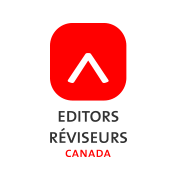
Editors' Association of Canada (EAC)
EAC on Facebook
Twitter @editorscanada
Professional Writers Association of Canada (PWAC)
PWAC Facebook site
Twitter @writersdotca
American Copy Editors Society (ACES)
ACES on Facebook
Twitter @copyeditors
Association of Freelance Editors, Proofreaders & Indexers (AFEPI)
Editorial Freelancers Association (EFA)
EFA on Facebook
Twitter @EFAFreelancers
Indexing Society of Canada (ISC)
Twitter @IndexersCanada
Northwest Independent Editors Guild (NIEG)
NIEG on Facebook
Twitter @Edsguild
Plain Language Association InterNational (PLAIN)
Twitter @PLAIN_Lang_Intl
Association of Registered Graphic Designers (RGD)
RGD on Facebook
Twitter @RGD
Society for Editors and Proofreaders (SfEP)
SfEP on Facebook
Twitter @TheSfEP
Society of Business Editors and Writers (SABEW)
Twitter @SABEW
The great thing about joining an organization is that you benefit from its newsletters, email listserves, and Facebook, Twitter, and LinkedIn accounts where members discuss everything from writing styles to how to set rates and invoice clients. Also, most organizations hold regular networking events and annual conferences which can be a great way to expand your professional network and learn new things about your profession.
So this year for the Christmas, consider treating yourself to a membership to an association that will help you become a better writer, editor, indexer, and more!
Stacey D. Atkinson is a freelance editor and author of Stuc k , a novel she published via her independent company Mirror Image Publishing.
November 21, 2014
Indie authors rocked the INSPIRE Toronto International Book Fair
Last week, Toronto hosted the inaugural INSPIRE Toronto International Book Fair which was a great event for publishers, authors, and book lovers alike. The fair featured workshops, guest speakers, and lots of booths and author signings. Publishers big and small gathered for this literary celebration, including the vibrant, self-published author community.
Let's begin by saying a big "thank you" to the Association for Art and Social Change for producing this international book fair for Canada! It was a great way for indie authors to promote their new books and to meet the fans. Otherwise, authors would have to travel to Book Expo America in New York, an incredible book fair and completely worth the trip, but it's not always in the budget for indie authors.
The Toronto booths included a wonderful representation of Canada's indie authors, including Wendy Hewlett, author of The Taylor Sinclair Series; Tara Antler, spiritual teacher and author of The Healing Manual; Sam Thiara, author of Personal Storytelling; Nico Murray, author of the modern vampire book Winterblood; and so many more talented writers. The fair also launched the new self-publishing award The Creation of Stories: Canada Self-Publishing Award.
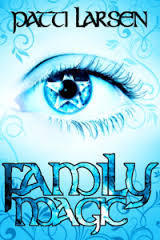
However, it was the story of Prince Edward Island indie author Patti Larsen, a brilliantly accomplished young adult author of over 50 paranormal books, that really caught my attention. During the book fair she won the international World's Best Story contest for her new novel Family Magic, beating out over 1,000 other entries from across Canada and the US. Her prize worth $50,000 included a North American book tour, a distribution deal, and help with turning her book into a film! Here's the CBC news coverage of her award.
I am so happy for all these indie authors who were able to carve out a niche for themselves at the INSPIRE Toronto International Book Fair and to bring much-deserved attention to their work.
Onward and upward, self-pubbers!
Stacey D. Atkinson is a freelance editor and author of Stuc k , a novel she published via her independent company Mirror Image Publishing.
November 7, 2014
Book awards you should know about
This week I participated in a discussion on book awards as part of the pre-taped Ottawa Writes podcast (to go live in January) with author Catherine Brunelle. I am a big fan of entering book awards because if you win, it can help increase publicity, sales, and credibility for your book as a self-published author. During the podcast, I promised to share with everyone my top book awards for indie authors, so here they are.
When I self-published my first novel last September, I researched how to promote a book and soon stumbled upon the world of book awards. One year later, I'm happy to say I won three awards/recognitions which have been invaluable to me--not only to boost my confidence as a new writer but also to bring attention to my book and to make it stand out in such a competitive market. You can also place the award symbol on your website and on your book cover.
Some things you may not know about book awards:
It's common for a book award to have an entry fee, which offsets the cost of administering the award, having prizes, and hosting the ceremony. So if you're on a budget, you'll need to plan ahead to decide which book awards to enter.
There are all kinds of scam book-award websites out there, so research wisely before you complete an entry form and pay the fee. You can usually tell that an award website is a scam by the amateur graphic design, neon fonts and unrelated ads. You can also google the name of the award with the word "scam" and see what results show up.
If you win a book award, you could receive some great prizes ranging from money to free books. You might also receive feedback from the judges, which can really help you understand your strengths and weaknesses as a writer.
My top picks for book awards for self-published authors in Canada/US:
Amazon Breakthrough Novel Award
Benjamin Franklin Book Awards presented by the Independent Book Publishers Association
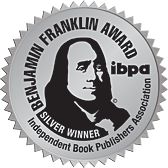
City-sponsored awards such as the Ottawa Book Awards
Forward's Book of the Year Award
Independent Publisher Book Awards
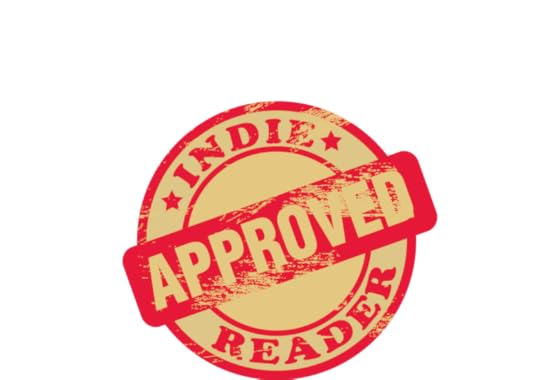
Regional awards such as the Atlantic Book Awards
Writer's Digest Award for Self-Published Books
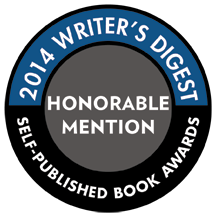
Good luck on your entries!
Stacey D. Atkinson is a freelance editor and author of Stuc k , a novel she published via her independent company Mirror Image Publishing.
November 5, 2014
My interview with IBPA at BEA 2014
Here I am in NYC at Book Expo America 2014, rockin' a fresh buzz cut and chatting with the lovely Angela Bole, executive director of the Independent Book Publishing Association.
October 31, 2014
How to write a scary story: "show" don't "tell"
I've been hearing it for years from writing coaches, show don't tell. I've attended songwriting workshops where we examined the precious few words that make up a hit song: show don't tell the instructors would say. I took a creative writing class where the teacher would drone on about effective setting, plot, characters, point of view, and the eloquence of building a story by showing not telling. But what did it all mean?
Let's examine this in the context of Halloween, shall we.
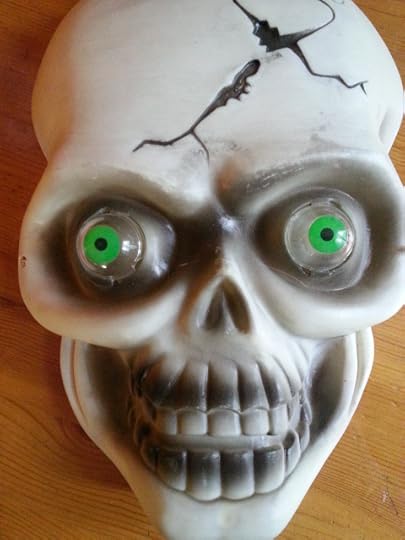
As we prepare our costumes this year, proudly showing our allegiance to The Walking Dead franchise, we're sure to pay a lot of attention to the details of our makeup and ghoulish attributes. We'll carefully apply the fake blood to the bullet hole in the side of our head and rip our clothing just so, letting the tattered fabric hang. We'll be quite literal with our costumes so there'll be no mistaking who we are: zombies of the earth.
However, when it comes to writing, we don't have to be quite so literal. There is power in leaving details up to the imagination of the reader, stirring up his or her own memories based on past experiences and fears, which can be much more potent than imposing our own descriptions. In other words, we don't know what scares our readers, but if we give them a chance to impose some of their own insecurities into the story, we might just be able to affect them on a deeper level.
For example:
Show: Jessica stumbled into the house and flopped on the couch, closing her eyes for just a moment. Creak.
Don't tell: When Jessica arrived home, she was so tired that she couldn't even make it upstairs to her bedroom, so she took a nap on the couch. Then she heard a disturbing noise.
Show: I could hear it growling in the woods and I knew it was close. I cocked the gun and waited.
Don't tell: I could see the vicious wolf standing among the trees, and I loaded my gun so I could stop the beast if it moved any closer to me.
Show: What was this thing chasing me? I coughed when I breathed in its putrid smell. I ran and hid behind the car, terrified it would find me, watching its jerking movements as it passed right in front of me.
Don't tell: What was this zombie chasing me? And why did it smell like rotting meat? I ran and hid behind the car as the undead corpse passed by right in front of me.
Happy Halloween, everyone!
Stacey D. Atkinson is a freelance editor and author of Stuck, a novel she published via her independent company Mirror Image Publishing.
October 21, 2014
A Wordle of my blog...
I just did a Wordle of my blog site. It shows the words I use most in my posts. Glad to see no swear words made it to the list. Ha!
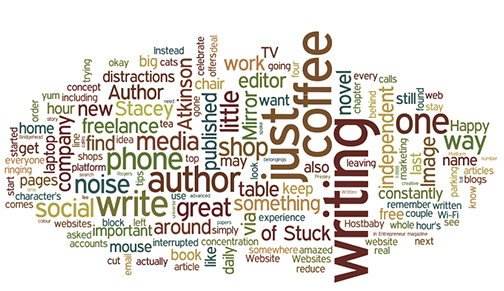
Happy writing, everyone!
Stacey D. Atkinson is a freelance editor and author of Stuc k , a novel she published via her independent company Mirror Image Publishing.
October 17, 2014
How to write a book at a coffee shop
Sometimes, in order to achieve great things, you have to get out of your own way. When it comes to writing a book, that could mean leaving your home for the afternoon and going somewhere with no distractions (and preferably no Wi-Fi) so you can simply concentrate on writing.
I recently started going to cafés again to write. I used to do this sporadically when I needed a change of scenery, but lately I've found it to be a great device for getting some real, concrete writing done. When you go to a coffee shop, there's no phone ringing, no social media notifications blipping, and no cat chasing the mouse cursor around the screen. It's just you and a latte, and perhaps a gluten-free cookie, with all kinds of time to kill.
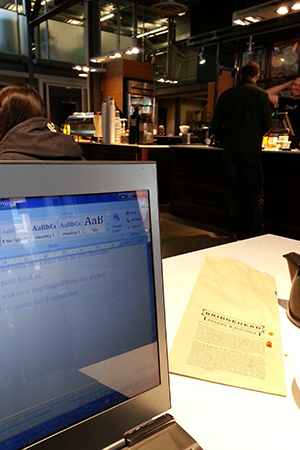
Here are my top 5 tips for finding the best coffee shop to write in:
1. Location: There are lots of great urban coffee shops around but not all of them have free parking, which is a must-have. You can't leave your laptop and belongings on the table to feed the meter every hour. Instead, do a Google Maps search for coffee shops near your house and find one that's within walking distance or at least one that offers free parking on the street or nearby.
2. Noise level: You actually want a fair amount of clatter in the coffee shop in order to create a layer of ubiquitous white noise. Too little noise and you'll hang on every word said between the couple at the table next to you; too much noise and you'll feel claustrophobic.
3. Enjoy the coffee/tea: Every coffee shop has a unique blend of coffee and tea, so pick one that you actually like to drink. Tim Hortons (new Dark Roast just added), Starbucks (strong coffee, fancy drinks), Second Cup (great teas), David's Tea (ultimate tea leaf experience), Bridgehead (yum, yum, organic), local diner (cheap)...you get the picture.
4. Comfortable seating and table space: If you plan to spend an hour or more at a coffee shop, you need to have a comfortable work set-up. Look for a place that offers a chair with a backrest and a table that's big enough for your laptop, mouse, papers, coffee and snack.
5. IT preparedness: Before leaving home, make sure to charge your laptop so you can write for a couple of hours before the battery dies. You may want to bring a portable mouse if you have one. Also, set your phone to silent and whatever you do, do not connect to the free public Wi-Fi. Pretend it's a zombie apocalypse and it doesn't exist.
Happy writing, everyone!
Stacey D. Atkinson is a freelance editor and author of Stuck, a novel she published via her independent company Mirror Image Publishing.
October 3, 2014
Here's a writing tip: just write
I'm not trying to be funny (okay, maybe just a little witty), but I truly believe the secret to writing a book is to sit your butt in a chair in front of your computer and just write.
Like any normal person in the universe, I have suffered from writer's block. And it stinks. It's a nagging little voice in your head constantly reminding you that you are behind in your writing, yet this is precisely why it is so hard to start up again. You've lost the flow. You know that the next chapter has to be based on the last but you've completely forgotten where you left off. Or, you're stuck on character develop or progressing the plot and you just can't see any way around it. It can all become quite overwhelming.
So I say--don't do it. Don't review your last chapter and certainly don't look at your notes. Instead, just open up your last saved file, find a section that needs writing, and start to write. And you'll be amazed at what happens. Suddenly you'll look at the clock and notice an hour's gone by and you've written four new pages! You'll be filled with exuberant joy and leap out of your chair to dance around the room to celebrate your invincibleness. Why? Because you just advanced your book by four pages and that is something to celebrate.
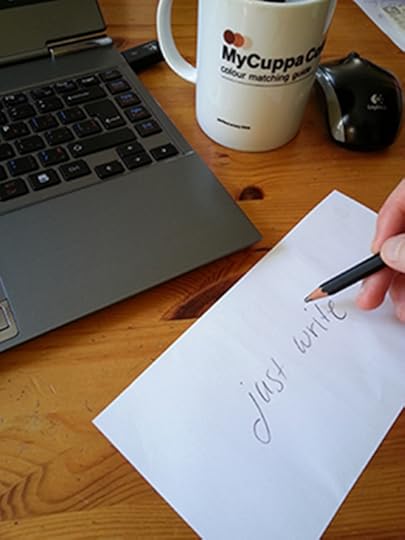
The whole idea behind the concept of "just write" is to trust your mind. Sure, you may not remember a character's name, but you remember the major action he's supposed to do, so just use a question mark as a placeholder for the name and keep writing. You may also forget a city name or the colour of a character's hair, but that's okay too. Just keep writing. In my experience, it's more important to write something than nothing at all, and you'll be amazed at how quickly the story line comes back to you. After all, the details are still in your creative brain somewhere, just snoozing in the murky grey matter until you enliven them.
Remember, a full page of writing is easier to edit than a blank one.
Stacey D. Atkinson is a freelance editor and author of Stuck, a novel she published via her independent company Mirror Image Publishing.
September 19, 2014
The toll of chronic interruptions on the writing process
This week I read an interesting article in Entrepreneur magazine about how chronic interruptions are assaulting our concentration and the bottom line. The article said that information overload costs the US economy $997 billion in 2010. I found myself nodding and saying "hell, ya," and vowing to do something about it in my own life. With a few simple changes, I was able to reduce my daily distractions and save money, too.
I don't know if you have the same problem as I do, but I am constantly interrupted at work, and the crazy thing about that is...I work from home! Even in a controlled environment of my own choosing, I am still interrupted throughout the day and it takes a serious toll on my concentration and productivity. So I made a list of my top annoyances and decided to do something about it.
1. the cats: climbing on my desk, biting at the paper coming out of the printer, stealing my pens
2. the landline phone: ringing daily with calls from RBC, CIBC, some 613.686.5002 number, and countless 1-800 and 1-888 numbers
3. the TV: turning it on at lunch while I eat and then realizing a whole hour has passed
4. social media: hearing that little dinging noise and checking to see who said what on Facebook, Twitter and Instagram
5. email: feeling like I don't want to miss anything and constantly scanning for new, incoming mail
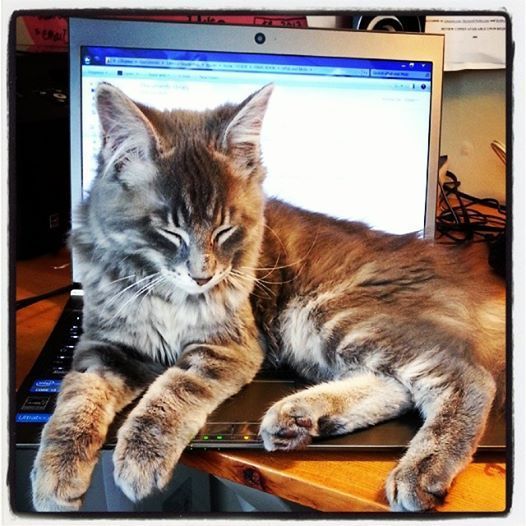
Deciding that the cats could stay (I love their cute little faces!), I was left with how to deal with the phone, TV, social media and emails. I started by making a big, big decision -- cut the phone and cable. For someone like me who was raised on TV, this was a scary concept, but I knew I had to do it. I called Rogers and asked them to cut the services, and after a painful 45-minute barrage of upsell tactics, the agent finally agreed to do what I asked. The conversation was annoying and disrespectful (because she wasn't listening to me) and borderline illicit (she tried everything to keep me to stay, including a mysterious $160 cancellation fee), but I persevered. Now I am now rid of two daily interrupters--phone and cable--and I'm saving about $80 a month. I still have a cell phone, but I block the telemarketers so only the real calls get through.
Next, I had to figure out a way to deal with the constant demand of social media and email. One really easy way to quiet the noise is to simply close my Chrome browser when I'm writing. That way, I have no idea what's happening in my accounts, and before I realize it, an hour's gone by and I've written several pages of new content. I'm also trying to stick to designated times to check my accounts, such as 8 a.m., noon, and 3:30 p.m.
I hope you, too, can find ways to reduce distractions when you work. Happy writing, everyone!
Stacey D. Atkinson is a freelance editor and author of Stuck, a novel she published via her independent company Mirror Image Publishing.
September 5, 2014
Author websites: how to do it right
An author website is an important promotional tool for writers by providing them a platform to promote their books, blogs, and other products and talents. While a website is but one spoke in the marketing wheel, it is the most important one because it provides the hub from which all other marketing campaigns and social media can be anchored.
Here are some great articles and blogs about the importance of author websites, including tips on design and meeting your fans' expectations. You'll also find examples of good author websites that you can use for ideas to improve your own site.
"An Author Website Checklist" by Digital Book World
http://www.digitalbookworld.com/2014/an-author-website-checklist
"5 Things Your Fans Want to See on Your Website" by Hostbaby
(Written for musicians, but translatable to authors, as Hostbaby is a web platform for DIY artists)
http://blog.hostbaby.com/2014/08/5-things-fans-want-see-website/
"Best Practices for Author Site Design" by Alison Presley
http://alisonpresley.com/2012/09/best-practices-for-author-site-design/
"Ten Author Websites That Really do the Business" by The Writing Platform
http://www.thewritingplatform.com/2013/02/ten-author-websites-that-really-do-the-business/
A series of helpful articles on "Author Websites" by the Huffington Post
http://www.huffingtonpost.com/tag/author-websites/
Happy web designing, folks!
Stacey D. Atkinson is a freelance editor and author of Stuc k , a novel she published via her independent company Mirror Image Publishing.

